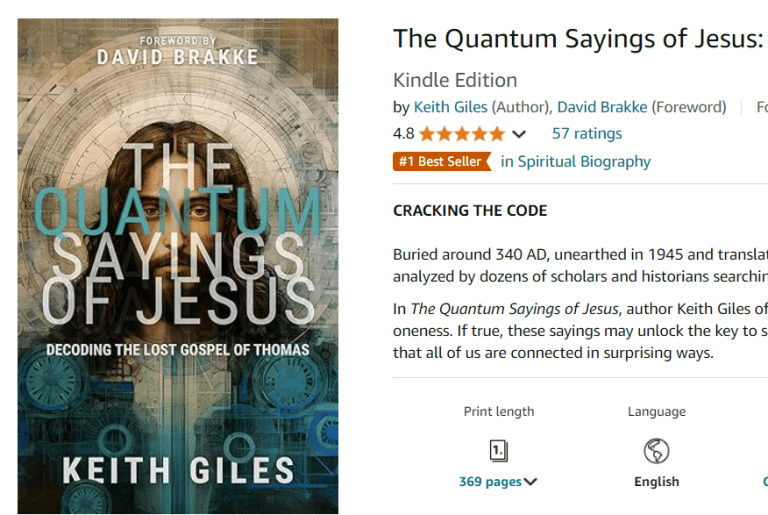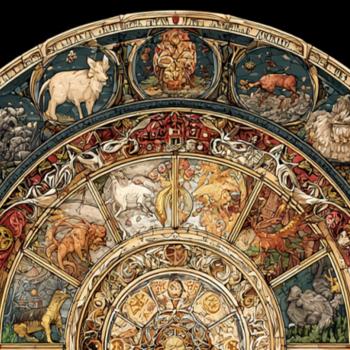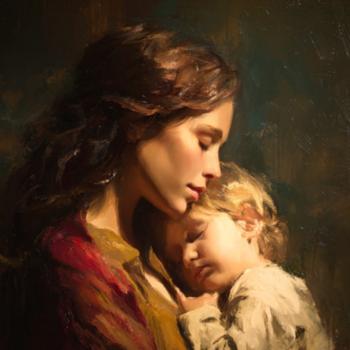
Have you ever heard of the Gospel of Philip? If not, you’re in for a wild ride.
This ancient text, part of the Nag Hammadi Library discovered in 1945, is one of those apocryphal gospels that didn’t make the cut into the New Testament [like the Gospel of Thomas and the Gospel of Truth].
And, let’s be honest, that alone makes it worth exploring. After all, when a group of early church leaders got together and decided what was “inspired” and what wasn’t, they weren’t exactly impartial judges.
Now, the Gospel of Philip is fascinating for a few reasons. First, it’s not really a gospel in the sense that it tells a story about Jesus’ life, death, and resurrection. Instead, it’s more of a collection of sayings and teachings, many of which are deeply mystical and downright mysterious.
If you’re looking for a clear, Sunday-school-friendly lesson, you’re not going to find it here. But if you’re open to digging into the more esoteric side of early Christianity, then this is the text for you.
One of the most controversial—and intriguing—elements of the Gospel of Philip is its portrayal of Jesus’ relationship with Mary Magdalene. There’s a famous passage that says, “The Savior loved her more than all the disciples and kissed her often on the mouth.”
Now, before we go jumping to conclusions about Jesus and Mary having a romantic relationship – I’m looking at you Dan Brown – let’s take a step back. Scholars debate whether this “kissing” was literal or symbolic.
In ancient Christian mysticism, a kiss wasn’t just about romance—it was a way of transmitting divine knowledge. Think of it as a spiritual exchange rather than a physical one.
But here’s where it gets really interesting: The Gospel of Philip leans heavily into the idea that salvation is about knowledge—gnosis—rather than just belief.
Even though I don’t consider The Gospel of Philip a Gnostic text – it’s more Valentinian actually – this Gospel does NOT present Jesus as a cosmic debt-payer who came to suffer and die to appease an angry God.
Instead, this lost Gospel suggests that Jesus came to reveal hidden truths about our divine nature. And that idea? It’s a game-changer.
Another key theme in this gospel is the concept of union—between the divine and the human, between male and female, between the physical and the spiritual. There’s this notion that humanity is incomplete, fragmented, and that true salvation is about restoring wholeness.
One of my favorite lines from the Gospel of Philip is: “If you become whole, you will be filled with light, but if you are divided, you will be filled with darkness.”
That’s not some legalistic, rule-following salvation message—it’s an invitation to transformation.
Of course, the early Proto-Orthodox church led by Irenaeus and Tertullian and others, wasn’t too thrilled with these ideas. They preferred a model where salvation came through authority, sacraments, and obedience—not through inner knowledge and personal mystical experience.
Because of this opposition, texts like the Gospel of Philip were buried (literally) and labeled as heresy. But now, thanks to the Nag Hammadi discoveries, we get to wrestle with these ancient, radical ideas for ourselves.
So, what do we do with all of this? Well, if you’re like me, you don’t just take someone else’s word for it. You explore, you question, you read these ancient texts for yourself and ask, “What resonates? What challenges me? What reveals something new about who Jesus really was?”
The Gospel of Philip doesn’t give us easy answers—but that’s what makes it so powerful. It invites us into the mystery, to embrace the journey rather than just settling for doctrine. And honestly, isn’t that what faith is supposed to be about?
And, if you’re really curious about the Gospel of Philip, I invite you to join me for a deep dive every Friday in our weekly INNER CIRCLE series starting this week!
**

The newest book from Keith Giles, “The Quantum Sayings of Jesus: Decoding the Lost Gospel of Thomas” is available now on Amazon. Order HERE>
Keith Giles is the best-selling author of the Jesus Un series. He has appeared on CNN, USA Today, BuzzFeed, and John Fugelsang’s “Tell Me Everything.”
He co-hosts The Heretic Happy Hour Podcast and his solo podcast, Second Cup With Keith which are both available on Spotify, Amazon, Apple, Podbean or wherever you find great podcasts.













